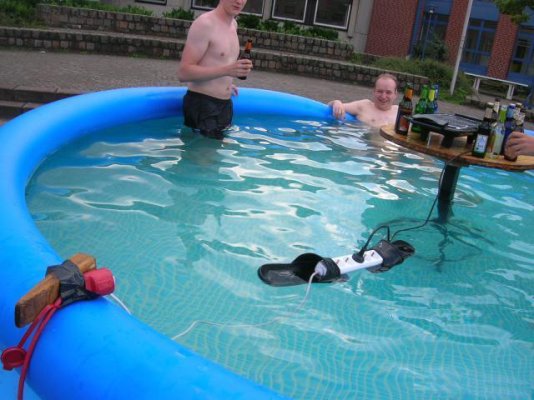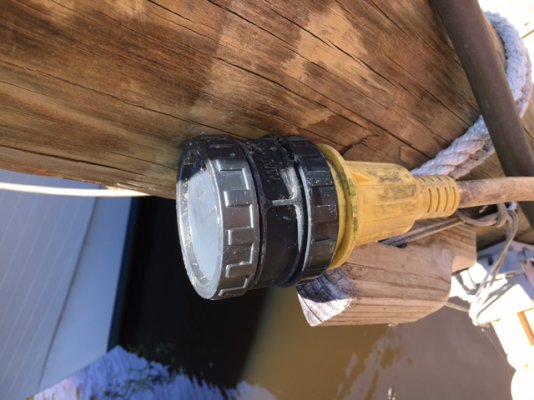HenryD
Senior Member
- Joined
- Dec 16, 2012
- Messages
- 477
- Location
- USA
- Vessel Name
- Seven Tenths (sold)
- Vessel Make
- Mirage / Great Harbour 47
Hi,
It's been raining for the last few days on/off. The last marina we were in, several slip holders had left their power cords on the dock when they went out enjoying boating.
My question is - why is it ok for the power cord ends to get rained on (wet) ?
Curious
Henry
It's been raining for the last few days on/off. The last marina we were in, several slip holders had left their power cords on the dock when they went out enjoying boating.
My question is - why is it ok for the power cord ends to get rained on (wet) ?
Curious
Henry



